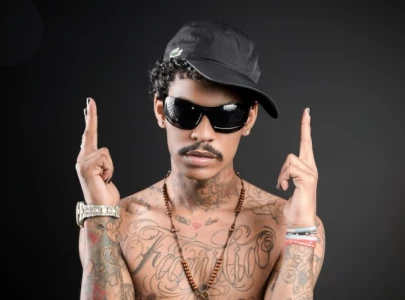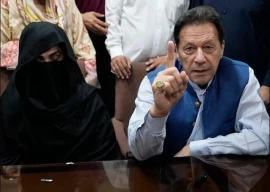
Up to 43 organisations, trusts and groups have been outlawed so far by the government for alleged involvement in terrorist activities, according to figures released by the interior minister.
Of the 14 organisations that were banned in the current year, most were based in Gilgit-Baltistan and Balochistan. A detailed list of terrorist bodies was presented in the National Assembly by Interior Minister Rehman Malik on Friday.
From amongst the 43 banned groups, two were banned before the 9/11 attacks for propagating sectarian violence namely Lashkar-e-Jhangvi and Sipha-e-Muhammad – both declared illegal in 2001.
Three organisations found on the list were proscribed by the UN. One of the three groups included Jamaatud Dawa (JuD), which was accused by Indian authorities of complicity in the 26/11 Mumbai attacks.
Though JuD remained proscribed by the UN, it was not banned by the government until 2002 when its name had been changed to Lashkar-e-Taiba.
Several banned outfits had resurfaced under fresh names. The list revealed that these included Sipah-e-Sahaba (SSP) which changed its name to Millat-e-Islamia Pakistan and Ahle Sunnat wal Jamaat (ASWJ).
The UN had passed a resolution in 2005 emphasising that Pakistan should ban three organisations namely the Hafiz Saeed-led JuD, Al-Akhtar Trust, and Al-Rashid Trust. However, these organisations have not been banned yet.
Four organisations, three from G-B and one from Karachi were banned in 2011. Five Balochistan-based organisations were banned in the year 2010.
Almost two years after the 9/11, al Qaeda was put on the list for banned organisations.
Four organisations were banned in 2008 including Tehreek-e-Taliban Pakistan (TTP). In 2006, two organisations were banned, one of them being the Balochistan Liberation Army. Khairunnisa International Trust was banned in 2004.
Seven organisations were banned in 2003 including Hizbut Tahrir. Six organisations were banned in 2002, including the Lashkar-e-Taiba (LeT) and Sipha-e-Sahaba Pakistan (SSP). Millat-e-Islamia Pakistan, the cover name for SSP, was banned in 2003. Ahle Sunnat wal Jamaat, another cover name for SSP, was banned by the interior ministry in February this year.
Published in The Express Tribune, September 9th, 2012.
COMMENTS (14)
Comments are moderated and generally will be posted if they are on-topic and not abusive.
For more information, please see our Comments FAQ

















Rehman Malik just make Ban on ORGANIZATION NAMES not their activities, they r openly killing people in Pakistan, STOP making fool ppl, Police n Army caught them and courts and Minister Rana sana ullah help to released them from jails...
How about an article which describes each of these terrorist outfits --- Pakistan spawns so many it's like an alphabet soup which makes it impossible to keep track of. Better yet -- how about Pakistan actually doing something to eliminate these groups rather than just "banning" them.
Strange 43 organizations banned and terrorism still exists. RM is very fond of camera appearance and stop giving lollipops to the nation. If he cannot eliminate terrorism he should step down.
The government should also ban all the terrorist from terror activities, i am sure that will solve the problem. LOL!
Pakistan looks safe heaven for such outfits. You ban one same re appears under different name. My dear R Malik find some permanent solution and not a face saving tactic.
Though JuD remained proscribed by the UN, it was not banned by the government until 2002 when its name had been changed to Lashkar-e-Taiba. . You got that wrong. JuD was formed as a front in the aftermath of Pakistan banning the LeT under pressure from the UN in 2002. . Also the way you have mentioned the names above, it sounds like Coca Cola Pakistan and Unilever Pakistan which makes them sound as if these are local franchises of foreign groups. The reality is just the reverse. Except for Hizb-ut-Tehrir, as far as I know all of the above have their roots (AND their base and sanctuaries and training camps) in Pakistan.
Merely banning the terrorists and sectarian organisations is not enough but severe action should be taken on a war footing by the state against their unlawful and violent activities in order to save the lives of its innocent citizens.
Pakistan Government is deceiving its own people and International community. All these terrorist organizations are banned on paper only, practically they are all operating. Pakistan Government defends ban on extremists groups like JuD with great enthusiasm, had it shown such enthusiasm in eliminating terrorist groups, Pakistan would have been a peaceful place.
Banning them alone will not help if you openly allow agencies to give them a free hand to operate in Pakistan. These so-called banned organizations are freely operating now..
What are their new names-Hello!
Ban or no ban by Govt does not matter at all. Establishment is the final decider, not the govt. Malik saheb, should relax.
forty three groups have been banned by Pakistan itself ( under the pressure of world bodies/US) while many more are yet to be banned despite the known anti state activities because these groups have active/ silent sympathizers in common people and the government find sit difficult to take actions against such groups for vote politics. Action may be expected against such groups after the general election.( Prudent decisions too are delayed . due to coalition compulsion and or the fear of vote erosion.